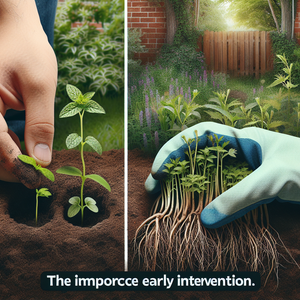Philanthropy and Profit: The Dual Legacy of John Fisher

John Fisher was not merely a businessman; he was a visionary imbued with a strong sense of social responsibility. His early exposure to social issues and commitment to effecting change significantly influenced his business philosophy. Fisher believed that successful enterprises bore a responsibility to contribute positively to society, thereby creating a sustainable ecosystem where businesses and communities could thrive together. His perspective on philanthropy was far from being an afterthought or a superficial gesture. Instead, it was an integral part of his business operations. Fisher understood that the long-term viability of his businesses depended on the health and well-being of the communities in which they operated. This understanding guided his philanthropic initiatives and shaped his overall business strategy.
Strategic Philanthropy: A Win-Win Approach
One of the most compelling aspects of Fisher's philanthropic journey is his strategic approach to charitable initiatives. Rather than viewing philanthropy as an isolated effort, he integrated it into his core business strategy. This dual focus allowed him to identify opportunities where investments could yield both financial returns and social impact. Fisher’s commitment to education serves as a prime example of this approach. He funded scholarships and vocational training programs designed to uplift underserved communities. By investing in education, Fisher not only contributed to social good but also ensured a skilled workforce that could benefit his businesses in the long run. This proactive strategy allowed him to create a cycle of investment and return, where the community's growth directly contributed to his business success.
Philanthropy as a Brand Builder
Fisher's philanthropic efforts also significantly enhanced his personal brand and the reputation of his businesses. In an era where consumers are increasingly concerned about corporate responsibility, Fisher’s dedication to social causes resonated with customers and clients alike. His businesses were perceived as community-oriented, fostering loyalty among consumers who valued ethical practices. For instance, Fisher invested in environmental sustainability projects that not only addressed pressing global challenges but also bolstered the reputation of his companies. By aligning his business objectives with philanthropic goals, he crafted a powerful narrative that attracted customers, partners, and investors who shared similar values. This alignment created a competitive advantage, demonstrating that corporate social responsibility can coexist with profitability.
Lessons Learned: Balancing Profit and Purpose
John Fisher's legacy offers valuable lessons for contemporary entrepreneurs. His ability to balance profit with purpose serves as a blueprint for how businesses can thrive while positively impacting society. The key takeaways from Fisher’s journey include: 1. Integration of Philanthropy into Business Strategy: Philanthropy should not be viewed as an isolated effort. Entrepreneurs can enhance their business models by incorporating social initiatives that align with their mission and values. 2. Long-Term Vision: Fisher’s approach to philanthropy was characterized by a focus on long-term societal benefits rather than immediate gratification. Entrepreneurs should look beyond short-term profits and consider the broader implications of their investments. 3. Building a Community: Engaging with communities and understanding their needs can lead to more effective philanthropic initiatives. Businesses that invest in their communities often see a positive return on investment through increased customer loyalty and brand reputation.
John Fisher’s dual legacy of profit and philanthropy exemplifies how business leaders can create meaningful impacts while achieving financial success. By intertwining charitable efforts with business strategy, Fisher enriched his own life and contributed significantly to societal betterment. As we navigate the complexities of the modern business world, his story serves as a poignant reminder that true success lies in uplifting others while pursuing personal and professional goals. In an era where social responsibility is paramount, Fisher’s approach to balancing wealth and altruism is more relevant than ever, inspiring future generations of entrepreneurs to follow in his footsteps. Through his legacy, Fisher demonstrates that the realms of philanthropy and profit can coexist harmoniously, creating a sustainable future for both businesses and communities.
Corporate Social Responsibility (CSR) Manager
Coca-Cola, Unilever, Google
Core Responsibilities
Develop and implement CSR initiatives aligned with company values and goals.
Measure and report on the effectiveness of CSR programs, ensuring transparency and accountability.
Collaborate with various stakeholders, including community organizations, to enhance social impact.
Required Skills
Strong analytical skills to assess the impact of CSR strategies.
Excellent communication and interpersonal skills to engage with diverse groups.
Familiarity with sustainability practices and corporate governance.
Social Impact Analyst
The Gates Foundation, Skoll Foundation
Core Responsibilities
Evaluate social programs and initiatives to measure their effectiveness and impact on communities.
Conduct research and analysis to inform strategic decisions related to philanthropic investments.
Prepare reports and presentations for stakeholders that highlight key findings and recommendations.
Required Skills
Proficiency in data analysis tools such as Excel, R, or Tableau.
Strong background in social sciences or public policy.
Experience in stakeholder engagement and community assessment.
Philanthropy Program Officer
Ford Foundation, Rockefeller Foundation
Core Responsibilities
Manage the grant-making process, from proposal solicitation to evaluation of funded projects.
Build and maintain relationships with grantees and community organizations to ensure alignment with mission goals.
Develop funding strategies that address pressing social issues, leveraging data to inform decisions.
Required Skills
Strong project management and organizational skills.
Excellent communication skills to articulate funding priorities and engage with stakeholders.
Knowledge of philanthropy trends and nonprofit sector dynamics.
Sustainability Consultant
Deloitte, Ernst & Young, EcoAct
Core Responsibilities
Advise organizations on best practices for integrating sustainability into their business models.
Assess environmental impact and recommend strategies for improvement.
Facilitate workshops and training sessions for corporate teams on sustainability initiatives.
Required Skills
Expertise in environmental regulations and sustainability reporting standards (e.g., GRI, CDP).
Strong analytical and problem-solving skills to develop actionable plans.
Ability to communicate complex sustainability concepts clearly to diverse audiences.
Nonprofit Marketing Director
American Red Cross, Habitat for Humanity
Core Responsibilities
Develop and implement marketing strategies to enhance the visibility and impact of nonprofit programs.
Oversee fundraising campaigns and donor engagement initiatives to drive financial support.
Collaborate with program teams to effectively communicate the organization’s mission and success stories.
Required Skills
Proven experience in nonprofit marketing or communications, with a track record of successful campaigns.
Strong writing and storytelling abilities to convey emotional and compelling narratives.
Familiarity with digital marketing tools and social media platforms.


